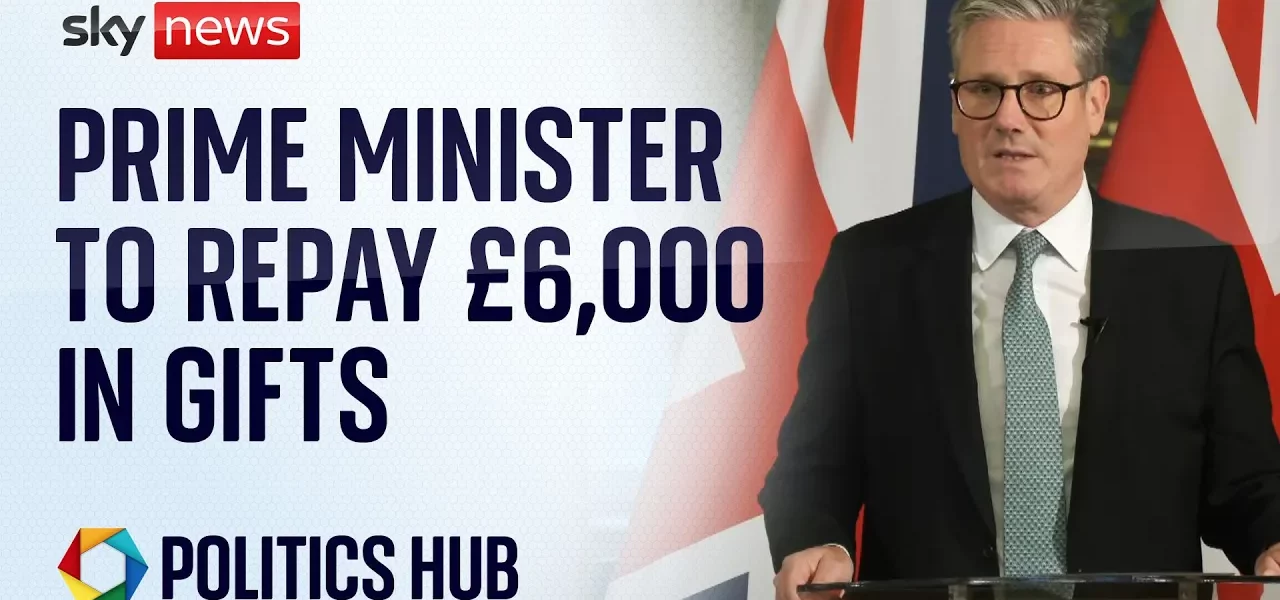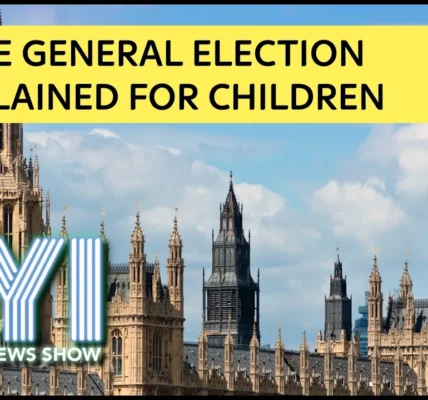Political Controversy: Donation Transparency and Ministerial Code Overhaul

In this article, we delve into the latest political controversy surrounding government donations and hospitality rules, as discussed by political correspondent Serena Singh. The ongoing issues highlight the need for transparency and accountability within the government, raising questions about the integrity of political figures and their financial dealings.
Introduction
The political landscape is often riddled with controversies that challenge the credibility of governing bodies. Recently, a series of donation-related scandals have surfaced, prompting government officials to reassess their transparency practices. Political correspondent Serena Singh sheds light on these issues, emphasizing the need for an overhaul of the hospitality rules for ministers. This article will explore the key points discussed by Singh, including the implications of the ministerial code and the ongoing investigations surrounding these donations.
The Sticky Issue of Government Donations
Government donations have become a contentious topic, with allegations surfacing regarding improper financial dealings. As Singh notes, the government has attempted to suppress these stories, yet they continue to emerge, resembling a game of Whac-A-Mole. Each time one issue is addressed, another arises, challenging the integrity of political figures involved.
Transparency Challenges
Singh highlights the government’s struggle with maintaining transparency regarding donations. The recent announcement to review the hospitality rules for ministers aims to provide clearer guidelines and promote transparency in political dealings. However, critics argue that these measures may be too little, too late.
Key Figures in the Controversy
- Kissama: The minister who has been at the center of the donation issue, facing scrutiny for accepting various gifts and hospitality.
- Lord Ali: A significant donor to Kissama, currently under investigation for alleged non-registration of interests.
Overhauling the Ministerial Code
In response to the ongoing issues, the government has pledged to update the ministerial code. This code serves as a guideline for ministers’ conduct, ensuring they operate within ethical boundaries. Singh asserts that these updates are crucial for restoring public trust in political figures.
Proposed Changes to the Code
- Increased transparency requirements for accepting gifts and hospitality.
- Regular audits of ministerial conduct concerning donations.
- Clear consequences for non-compliance with the updated rules.
The proposed changes aim to create a more accountable governmental framework, reducing the likelihood of future controversies regarding donations.
The Investigation of Lord Ali
As noted by Singh, Lord Ali’s investigation has added another layer to this complex political scenario. Allegations of non-registration of interests have raised eyebrows, with political opponents eager to capitalize on any weaknesses in the government’s narrative.
Potential Outcomes of the Investigation
The investigation could lead to various outcomes, depending on the findings:
- If deemed trivial, the investigation may conclude with minimal repercussions.
- Serious findings could result in significant political fallout for Lord Ali and Kissama.
- Continued scrutiny could lead to a broader examination of donation practices across the government.
Conclusion
In conclusion, the ongoing political controversy surrounding donations and hospitality rules underscores a pressing need for reform within the government. As discussed by Serena Singh, the proposed overhaul of the ministerial code and the investigation into Lord Ali represent crucial steps toward enhancing transparency and accountability. The political landscape will likely continue to evolve as these issues unfold, and it remains essential for the public to stay informed and engaged. For further reading on related topics, explore our articles on transparency in politics and government accountability measures.
“`




